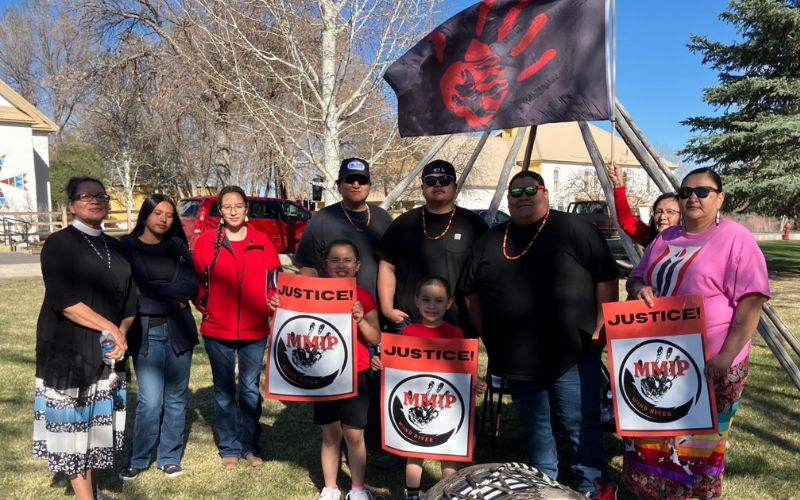
- Details
- By Elyse Wild
The FBI has completed a data collection project on Missing and Murdered Indigenous People (MMIP) cases on the Wind River Reservation in northern Wyoming. The aim of the project — to compile an accurate list of cases involving Native Americans who are missing or are the victims of unsolved homicides and determine which resources are needed to move the needle — may have fallen short due to limited community engagement, according to one MMIP advocate.
The project included a dedicated tip line, email address, and two in-person sessions to give community members the opportunity to provide information on MMIP cases.
Nicole Wagon (Northern Arapaho), founder of advocacy group MMIP Wind River, said that many people didn’t know about the in-person sessions, or if they did, were unable to attend due to them being held during working hours. Sessions were held on April 16 at the Shoshone Rose Casino from 1-3 pm; and on May 8 at the Wind River Hotel and Casino from 4-6 pm.
“They failed with communication,” Wagon told Native News Online. “Nobody had any idea about the in-person sessions. I had so many emails, calls and text messages of people saying they couldn’t attend because of the time frames.”
Wagon lost two daughters to the MMIP crisis within the span of a year. Her daughter Jocelyn was killed at age 30 in January 2019; 23-year-old Jade was found dead on the Wind River Reservation in January 2020.
She was optimistic about the FBI’s project when it was first announced in February, telling Native News Online that it would give victim’s families an opportunity to be heard.
The MMIP crisis is prevalent across the country, with Indigenous peoples being murdered at a rate ten times the national average. Homicide one of the leading cause of death for Native women ages 10-34. While the Bureau of Indian Affairs estimates there are 4,200 unsolved MMIP cases, the actual number is likely higher, Native advocates say.
Native American people make up about 3.5% of Wyoming’s population but represent 15% of the missing persons recorded in the state’s National Crime Information Center.
The Not Invisible Act Commission —a federal commission tasked with developing federal recommendations to solve the nation’s MMIP crisis — released its final report to Congress last November. The report identified inconsistent, inaccurate, and disparate data as a driving force for high rates of unsolved missing persons and murder cases in Native communities. It cited that there are more than 18,000 federal, state, county, Tribal, and local law enforcement agencies in the U.S., all of which have their standard operating procedures and guidelines for data collection and entry in their agency’s case management systems as well as others they may use to help solve cases.
Wagon says she invited the FBI team to the Wind River MMIP March, hoping it would help them build relationships with the community to enhance the outcome of the data collection project. The march was 250 attendees strong, with booths and tables from organizations offering assistance to families and victims.
“If the FBI attended the march, it would build a relationship with the community,” Wagon said. “It possibly could’ve built trust for the MMIP victims and families to open up to them for information and possibly set appointments to talk to them.”
The result, she says, is an inaccurate picture of the crisis. According to a statement from the FBI, through the data collection project on Wind River, they received 35 tips and, from those, identified four homicides and three missing persons cases. All seven of those cases had previously been reported through appropriate law enforcement channels. The Bureau says it is evaluating those cases to ensure they were properly investigated. No previously unknown cases were identified.
“We will continue the dialogue among tribal communities and federal state and local law enforcement,” FBI Assistant Special Agent in Charge Leonard Carollo said at a press conference on Tuesday. “We have justice as our common goal and we will continue to investigate and advocate on behalf of the victims on the Wind River Indian Reservation.”
When Native News Online asked if the results of the project are an accurate reflection of the MMIP crisis in Wyoming, Wagon answered, “No. Not at all.”
More Stories Like This
‘You Are Never Alone’ | How One Tribe Is Fighting Youth Suicide With Culture and Crisis Response‘Our Culture is Prevention’
This National Cancer Prevention Month, Reduce Your Risk
New Mexico Will Investigate Forced Sterilization of Native American Women
USDA Expands Aid for Lost Farming Revenue Due to 2025 Policies


